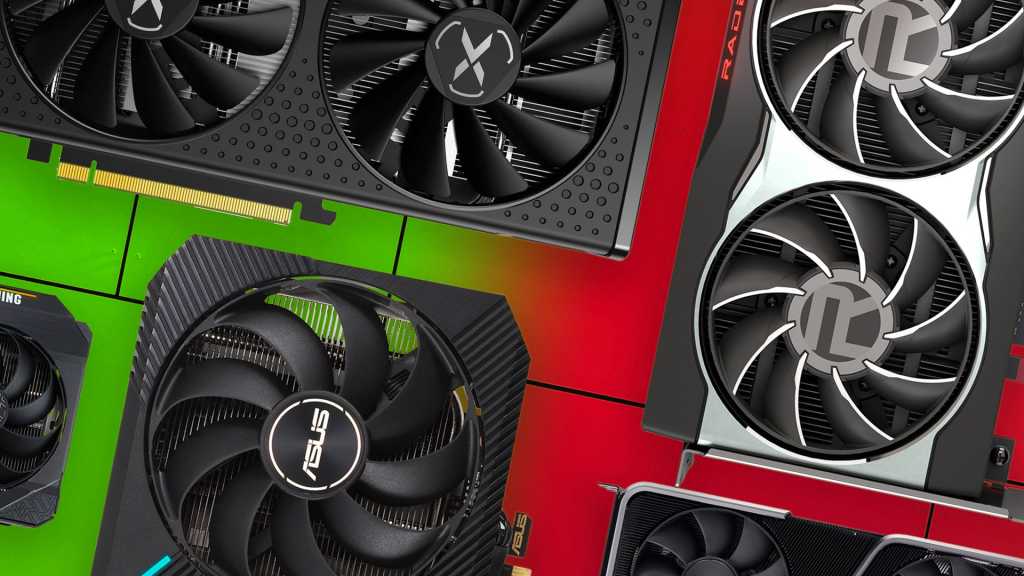It’s been a rough time lately if you’re hunting for bargains in the graphics card segment. While the shortages of the pandemic are thankfully behind us, Nvidia seems content to push prices higher and higher, and its dominant market position is pulling on the competition. That said, since it’s been over a year since we saw any major upgrades, you should be able to find some sweet deals on a new GPU on Black Friday.
Nvidia cards are seeing modest discounts at best, since these GPUs remain in high demand as AAA games continue to push modern desktops to the limit and beyond. Exclusive tech like DLSS makes Nvidia hard to ignore, even if you’re on a budget. But if you can go with the competition, you can find some huge bargains on both AMD and Intel designs. For truly shocking deals, hunt for AMD’s Radeon 6000-series cards, which are still more than capable of playing the latest games on most resolutions.
For those trying to build a gaming PC (or just a regular PC with a little more oomph), I’d strongly suggest considering Intel’s first-gen Arc cards. Not only are they being heavily discounted off their original, very competitive prices already, Intel has demonstrated that it’s committed to heavily supporting its GPUs with frequent driver updates.
Best early Black Friday Nvidia graphics card deals
- MSI RTX 4060 Ti 16GB, $449.99 ($50 off) at Amazon
- MSI RTX 4070 12GB, $549.95 ($50 off) at Amazon
- PNY RTX 4080 16GB, $1,099.99 ($100 off) at Gamestop
- Zotac RTX 4080 16GB, $1,129.99 ($70 off) at Amazon
Best early Black Friday AMD graphics card deals
- XFX Radeon RX 6700 XT 12GB, $329.99 ($150 off) at Newegg
- XFX Radeon RX 6750 XT 12GB, $339.99 ($210 off) at Amazon
- Asrock Radeon RX 6950 XT 16GB, $599.99 ($500 off) at Newegg
- XFX Radeon RX 7900 XT 20GB, $760.65 ($140 off) at B&H Photo
- PowerColor Radeon RX 7900 XT 20GB, $799.99 ($100 off) at Walmart
- Sapphire Radeon RX 7900 XTX 24GB, $949.99 ($50 off) at Amazon
Best early Black Friday Intel graphics card deals
- Asrock Arc A310 4GB, $99.99 ($40 off) at Newegg
- Sparkle Arc A380 6GB, $119.99 ($20 off) at Amazon
- Asrock Arc A580 8GB, $169.99 ($10 off) at Newegg
- Intel Arc A750 8GB, $209.99 ($70 off) at Best Buy
- Sparkle Arc A770 16GB, $289.99 ($60 off) at Amazon
FAQ
When is Black Friday this year?
Black Friday 2023 is on November 24. But if you’re looking to score a deal, there’s no need to wait, as the GPU sales have already begun.
What graphics card should I buy?
Okay, that’s kind of a big question. The answer is generally “whichever one you want and can afford.” But there are a lot of factors that go into which card is actually practical for you, not the least of which is whether your PC can physically hold or power up the GPU you choose. Make sure to read PCWorld’s rankings of the best graphics cards of 2023 to make informed decisions.
Should I buy Nvidia, AMD, or Intel?
All modern desktop graphics cards connect via the PCI-Express slot on your desktop computer’s motherboard. As long as you have one slot free (and the required number of slots open to plug it into your computer case), it’ll work. The difference between Nvidia and AMD is pretty slim at most price points. Unless you’re interested in a particular feature of one brand, like Nvidia’s RTX effects or AMD’s FidelityFX SuperResolution, either will do fine.
Intel’s Arc cards are a different proposition. The company is competing aggressively on price, making these cards a bargain, at least for newer games. And they’ve done that successfully, improving upon initially buggy drivers to deliver a much more reliable experience.
Is my desktop compatible with a new graphics card?
It’s time to break out the tape measure. Almost all modern desktops can fit at least some kind of external graphics card, as long as they have at least one PCIe slot on the motherboard. But before buying a new card, make sure your case can fit it, both in length (measured in millimeters) and in slots (the number of eternal notches at the rear of the case, not physical PCIe connections) it needs. Most mid-range cards use two slots, but more powerful ones can use three or even four.
You also need to make sure that your computer’s power supply can handle the additional watts drawn by the new GPU, and that it has the correct power connections to supply electricity to it. If not, you can always upgrade your power supply, too.
How much should I spend on a new GPU?
Generally speaking, the more you spend on a graphics card, the more powerful it will be—the better the effects and the more frames you can push in AAA games. A $1,000 card isn’t necessarily twice as good as a $500 card, but it’ll definitely be a lot better.
However, there’s such a thing as too much. If your computer is six or seven years old, the “bottleneck” of performance might be your processor or RAM, so spending four digits on a new card wouldn’t be wise.
Should I upgrade the rest of my computer too?
It depends. If you’re upgrading to a really powerful graphics card, you definitely want to make sure that your power supply can handle it. If you haven’t upgraded any of the major components in a while, it might be time for a system overhaul, too. That usually means a new processor, motherboard, and sometimes RAM, though AMD AM4 motherboards can slot in relatively new CPUs without needing any other new components.
If you’re not sure you want to drop that much on new hardware, you can always upgrade the GPU, do some testing in your favorite games, and see if you have the performance increase you want. If not, you can upgrade the other components as needed.


